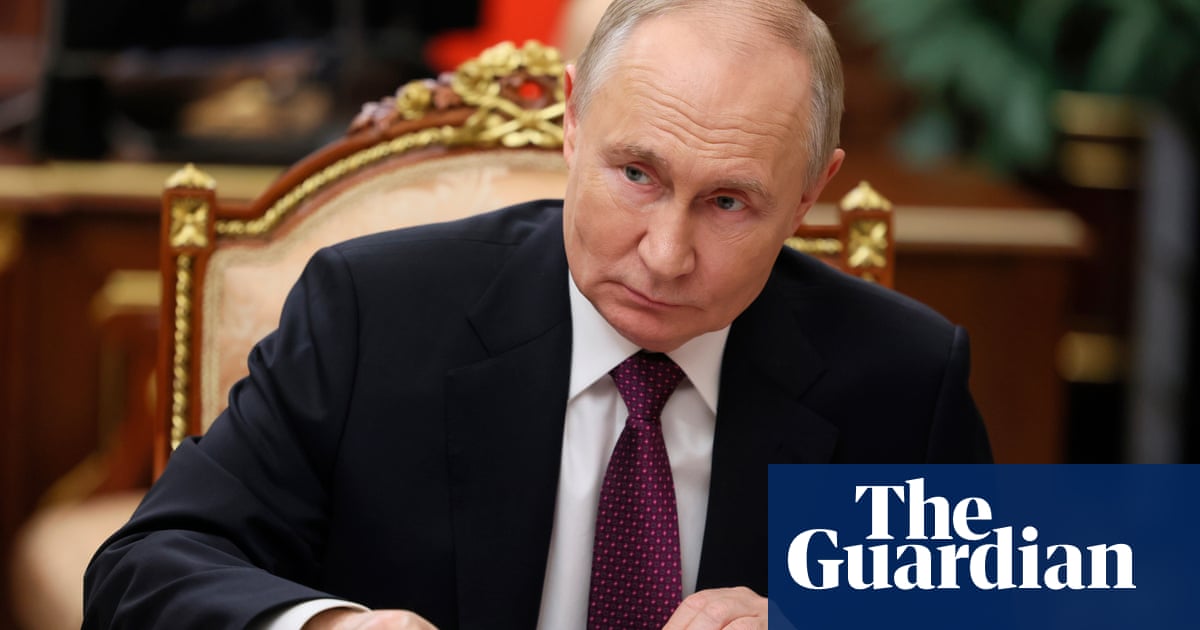How might Russia respond to UK and US letting Ukraine hit it with their missiles?

- by Admin
- November 20, 2024

How likely is it that Russia would use nuclear weapons in the Ukrainian conflict?
The Kremlin has brandished its strategic arsenal before over the course of the Ukrainian conflict, in an attempt to deter western involvement. But for all the threats, the US has said it has seen no signs of unusual movement at Russian nuclear weapon storage sites, suggesting there has been no change in the physical positioning of tactical warheads.
Most experts think use of nuclear weapons by Russia is unlikely for now, but have cautioned against complacency. Pavel Podvig, a senior researcher at the UN Institute for Disarmament Research, said he did not believe that dropping a bomb in Ukraine was on Moscow’s list of options “primarily because it would not help achieve any military goals, and Russia is advancing at the moment”.
Furthermore, the use of a nuclear weapon in a conflict for the first time since 1945 would unite much of the world against Russia in ways Moscow could not easily predict, Podvig argued.
“So, it would be a serious gamble. But I cannot, however, rule out that the Kremlin is prepared to take its chances. Especially if Moscow feels that it can count on a weak response. We don’t know if it can,” he said on the Bluesky social media platform.
What other ways can Russia hit back at the west?
Moscow has shown a great deal of imagination in its use of hybrid tactics, taking place in the “grey zone” between peace and war, against its enemies.
It has weaponised the flow of people migrating to the west, directing them towards the Polish, Lithuanian and Finnish borders with the aim of causing those countries political difficulties.
Russian military intelligence has also carried out assassinations in the UK, Germany, Spain, Austria, Turkey and elsewhere. It has planned sabotage attacks, allegedly including the use of incendiary devices found at DHL cargo hubs in Germany and the UK in July. Western intelligence services believe the attempted bomb attacks were dry runs for similar potential attacks on flights to North America.
In the US and in Europe, Russian internet bots have amplified polarising issues, with the aim of loosening social cohesion, and strengthening the far right. Russia has also been accused of jamming GPS signals, particularly over the Baltic, disrupting the navigation of thousands of passenger planes.
On Wednesday, the Danish authorities named a Chinese cargo ship as having been closest to the area of the Baltic Sea where two undersea communications cables were severed earlier this week. However, Elisabeth Braw, an expert on grey-zone conflict at the Atlantic Council, said that did not rule out Russian involvement.
“Merchant vessels don’t normally go and cut undersea cables for the fun of it,” Braw said. “What we’ve seen is that Russia is very good at using proxies.”
What allies and proxies can Russia use?
Moscow has a record of forming temporary marriages of convenience with allies and proxies to carry out disruption operations in the west. According to a report in the Wall Street Journal last month, Russia has provided targeting data to Yemeni Houthi rebels for use in targeting western shipping in the Red Sea.
In the UK, the head of MI5, the domestic security service, said in October that Russian intelligence had dramatically stepped up its collaboration with criminal gangs as part of “a sustained mission to generate mayhem on British and European streets: we’ve seen arson, sabotage and more”.
How can western countries respond to Russian hybrid warfare?
The fact that such attacks take place in a grey zone, using proxies and plausible deniability, make them particularly hard to contain or to react to. They fall below the level of open warfare, criminal investigation does little to hold Moscow to account, and intelligence agencies in western democracies are mostly constrained from responding in kind.
“We are just not going to jam Russian navigational signals on the water or in the air, because it can cause accidents,” Braw said. “The Russians are very good at this. They keep innovating and if it’s successful, fine. If the effect is negligible, no harm done, because they are not going to be punished. It’s very difficult to figure out how to punish them.”
The Latest News
-
December 22, 2024Elon Musk’s British cousin reveals how brutally world’s richest man snubbed him: ‘I’m shocked that…’
-
December 22, 2024‘Labour will torpedo my firm’: One of Britain’s OLDEST family businesses says inheritance tax plans could destroy his finances in ‘blink of an eye’ after 250 years of trading
-
December 22, 2024UK Weather: Wind messes up UK travel plans
-
December 22, 2024Life in one of Britain’s most miserable towns: Locals in Barking blast council ‘shambles’ and say shopping centre is so empty it is like living in a ‘ghost town’
-
December 22, 2024Christmas travel chaos continues with 100 Heathrow flights cancelled amid severe 80mph wind weather warnings





